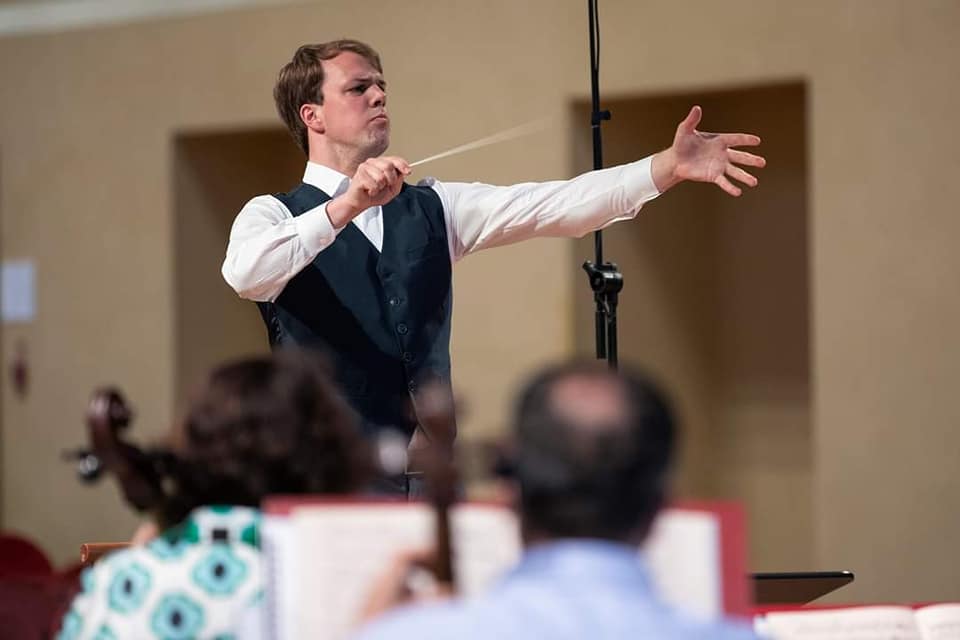The last word from Graham Vick
OperaThis was his keynote speech to the Royal Philharmonic Society, five years ago, calling for opera to combat inequality.
We will not see his like again.
The RPS has sent this around today, in memoriam.

This was his keynote speech to the Royal Philharmonic Society, five years ago, calling for opera to combat inequality.
We will not see his like again.
The RPS has sent this around today, in memoriam.
The Finnish music world is in mourning for…

Singers’ agents tell us of a tsunami of…

The city of Würzburg has been shaken by…

Here’s a happy holiday story. The young Austrian…

Session expired
Please log in again. The login page will open in a new tab. After logging in you can close it and return to this page.
I was there for his fascinating speech and the reception from the audience was excellent and well deserved.
What follows is no criticism of Graham Vick the director. Also I didn’t know him personally and have no axe to grind.
‘Any work of art worth its salt contains the demand for change.’
I can’t decide if this is wrong or simply meaningless. It’s certainly glib.
‘So it’s no surprise that our most conservative of countries should feel challenged by the very concept of art, just as it’s always been challenged by the concept of religion; never more so than now. But King Canute got his feet wet, change happens and the country of my childhood, which struggled to pull together and build a better future for its young, instead has built today’s dangerously divided society – divided by opportunity, race, religion and above all, by wealth.’
This ‘most conservative of countries’ wasn’t conservative enough. The problem is not that the country didn’t ‘build a better future for its young’ but that it didn’t prevent the disintegration caused by mass immigration and ‘comprehensive education’. The country of Vick’s childhood was a safe place and there was classical music everywhere (Britten and Pears were household names). Where were the divisions in those days?
‘How can we bind this fractured world together? Where can we look for our common humanity? I look for it in music. Music already belongs to everyone.’
Like nature, music doesn’t really seem to belong to anyone. Most people don’t seem to care about most of it. Some value their pop music and a refined few appreciate classical music but this seems like an age of extinction.
‘Music effects change by touching humanity. Through music we can harness and share the richness of cultural background and identity, the breadth of life experience and alternative perspectives available in our expanding communities and enrich all our understanding.’
‘Richness of cultural background… alternative perspectives…’ – It’s not richness: it’s dilution and degeneration. Most people are ignorant and stupid and there’s little to be learnt from them.
‘Somehow always the same audience’
The clever and refined are a very small group nowadays.
‘There in the glorious participation of audience and performers – of people and peoples from every aspect of the city, every age, every ethnicity every social background – only there can I be completely myself – only there do I find myself – only there is my loneliness always consoled’
This is madness: Vick is claiming to have found consolation in the participation of tiny numbers of people from ‘every ethnicity, every social background’ but doesn’t recognize that it’s the mass of those from inimical cultures that have caused his isolation.
‘in Birmingham we go out and find our audience; meeting them on their own ground’
These people are the exceptions that prove the rule. Vick’s optimism would be laughable if it weren’t so tragic.
‘Our process is open, enabling, empowering; a level playing field. Everyone has a voice. In fact anyone who wants to can join our chorus – no auditions. If you want in, you’re in.’
And the orchestra? Allowing anyone into the chorus, however lacking in talent, just proves how impoverished society has become. Also, did Vick not consider that he should perhaps employ struggling singers?
‘Empathy – the ability to feel what someone else feels – is in short supply in our society.’
We all used to feel more-or-less the same. It’s only now that we no longer have shared experiences and values, that empathy seems remarkable. It’s another thing near extinction.
‘It’s time to change. It’s time for each one of us to step up and take responsibility for the well-being of our society rather than just taking.’
It’s probably too late. Nobody cares.
‘I want our work to be part of the solution not the problem.’
Pretending that the Birmingham Opera Company is part of the solution is a bit like being careful about sorting your rubbish for recycling and thinking that you’re doing a lot to reduce pollution.
‘I see 40 years of work towards the democratisation of art being swiftly reversed by its privatisation. I keep hearing “mixed economy”, but make no mistake – we are hurtling towards the American model, where the wealthy pay even less tax in return for a stranglehold on cultural institutions – a phenomenon we see across our society and one that risks driving division ever wider.’
The idea that opera is supressed because of the contributions of the rich is ridiculous. There’d be nothing left if wealthy patrons hadn’t sustained the opera houses. Gone are the days of amateur operatic societies putting on anything other than musicals.
‘Maybe that way artists will help bind together our fractured society.’
They used to before British society was undermined. Who might these artists be anyway? Most classical composers seem to have little talent and nothing to say. Jazz musicians don’t seem to be prepared to go any deeper. A lot of pop music seems to be produced by non-musicians. Occasionally I wonder what would happen if someone like Jacob Collier had a really serious go at writing a comic opera (he should analyse Mozart’s and Rossini’s Beaumarchais operas) but otherwise things are looking desperate.
Excellent post. What’s more, Canute getting his feet wet indicates that nature resists the manufactured ‘progress’ so beloved of social engineers.
I think what you are trying to conserve has gone off and you have to start afresh. Graham Vick started every work afresh, he was not infallible but at least he tried and most of the time succeeded.
This comment is so depressing that makes me think what do you really want from art?
Of course you are right, but don’t expect people to agree with you.
Of course, you are right. But don’t expect people to agree with you.
And the American model you cite has changed : where are the (mainly Jewish) philanthropic patrons of the arts that were so evident 50 years ago now? Overtaken by billionaires spending their money on rockets and boats. Do they care about cultural institutions?
Just think what change might have happened beyond the Arts if Sir Graham had gone into wider politics and shaken people and institutions as he did on this occasion.
If it were enough just to have good ideas in politics, we’d all be living in paradise.
His existence would have been as pointless as that of all the other Labour politicians.
I believe this speech could reach around the world,and help us become mindful of truly is important within our short existence.
“We will not see his like again” is one of those trite sayings which is rarely true. And I’m sure that Graham Vick would not wish it to be.
However, when P T Barnum said, of Zazel, the human cannonball, “we shall not see an artist of her calibre again,” he was correct.